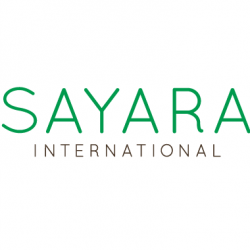Levant7-Monitoring And Evaluation Bid
About Us
Levant7 is an international development firm specializing in ground-based research and program implementation in complex environments. By employing community-based solutions, our programs focus on civil-society and governance; stabilization and transition; capacity building; and research and evaluation methods that account for the challenges of populations in crisis.
Our teams of professionals work out of Levant7’s global offices in Beirut, Kabul, and Washington, DC.
Project Description
Levant7 (L7) is about to launch a project that aims to strengthen the resilience of vulnerable Lebanese communities against drivers of violence and instability entitled Support Networks against Destabilization (ISNAD) project. This will be accomplished through a two-pronged approach. First, the program will strengthen the capacity of strategically identified CSOs and youth groups to both identify and respond to local drivers of instability. Throughout the program, youth groups will work collaboratively with CSO partners to conduct civic engagement activities that target the identified drivers. The CSOs will also receive training on how to identify gaps in linkages and communication between local communities, CSOs, and municipal governments. Subsequently, the project will connect these groups by creating standing coalitions comprised of youth, CSO leaders, and municipal officials. Each coalition will design and execute an action plan to directly address the identified drivers of instability and to create safer communities. This project will take place in close to ten communities in the governorates of Bekaa and the North.
Statement of Purpose and Scope of Work
Levant7 is seeking a qualified firm or individual consultants to carry out the monitoring and evaluation of ISNAD’s achievements and effectiveness for a budget of no more that 30,000 USD. Specifically, the main objectives of this consultancy are to:
Evaluate the effectiveness of each of ISNAD’s two project objectives; Monitor and verify the ISNAD’s achievements against agreed-upon, objective, and measurable indicators of success Provide actionable recommendations based on research findings and identification of lessons learned to inform future programmatic design.
Methodology
To achieve the above objectives, Levant7 is proposing the use of three different evaluation research instruments, these include:
A desk review of relevant programmatic documents:
These documents could include, but are not limited to, monthly reports, internal Monitoring and Evaluation (M&E) frameworks, project design, lists of project beneficiaries, and attendance sheets from workshops and coalition meetings. The final list of documents to be targeted for review will be determined in collaboration with ISNAD.
Quarterly In-depth interviews with key informants of the ISNAD project (10 each quarter for a total of 40 KIIs):
The KIIs will follow a semi-standardized format. The bulk of each interview guide should be made up of open-ended questions to give space to interviewees to describe their experience in their own words.
Individuals to be interviewed include but are not limited to:
1) ISNAD project staff,
2) CSO members,
3) implementing partners,
local beneficiaries (community leaders, municipal officers, and other coalition members)
Quantitative baseline and end line surveys with randomly selected respondents throughout the 10 target communities (n=400 per survey, 800 total).
The survey will comprise the central research technique for obtaining statistically valid, representative, and comparable measures of program indicators. A minimum of 400 randomly selected community members should be surveyed at the beginning of the program and at the end – after the program has been in effect for an additional quarter. The survey sample population will be distributed proportionally across the ten focus areas. The survey should be designed to measure important program indicators including beneficiary satisfaction, impact of the skills taught, and the program effectiveness. All of these measurements should be disaggregated by key demographic factors including, but not limited to, gender, university, major, age, and the type of course they participated in, in order to be able to more accurately assess the program achievements and more confidently assert programmatic recommendations.
Time Frame
This consultancy is over a period of 15 months starting February 2016 and includes one baseline survey in the first quarter, quarterly assessments (monthly reports; KIIs in each of four quarters) and an end line survey (in the final quarter).
Deliverables
The outputs of the assignment will be composed of the following:
1) Monitoring and Evaluation Framework in collaboration with the ISNAD team to be submitted 1 week from contract signature.
2) Sample design for the beneficiaries’ survey 2 weeks from contract signature, prior to administering the baseline survey.
3) Monthly progress reports
4) Quarterly summaries of KIIs results.
5) Final Evaluation report, 15 months from contract signature. The final report will contain an executive summary that includes a brief description of ISNAD, the scope of the assignment, its methodology and its major findings including a comprehensive evaluation of ISNAD effectiveness, conclusions and recommendations.
Qualifications
At least 3 years of experience in designing and conducting evaluations of social programs. Expertise in sampling and in the design and implementation of satisfaction and program effectiveness surveys. Experience in combining quantitative and qualitative methods is essential. Proficiency in English and Arabic is essential.
Interested firms should send their proposals along with a financial proposal listing all the costs associated with the assignment to [email protected].
PROPOSAL GUIDELINES
Interested firms/consultants are asked to submit a proposal containing the following:
1. Technical approach / Understanding of the SoW
2. CV for key staff & Staffing approach
3. Organisation profile & Relevant past performance
